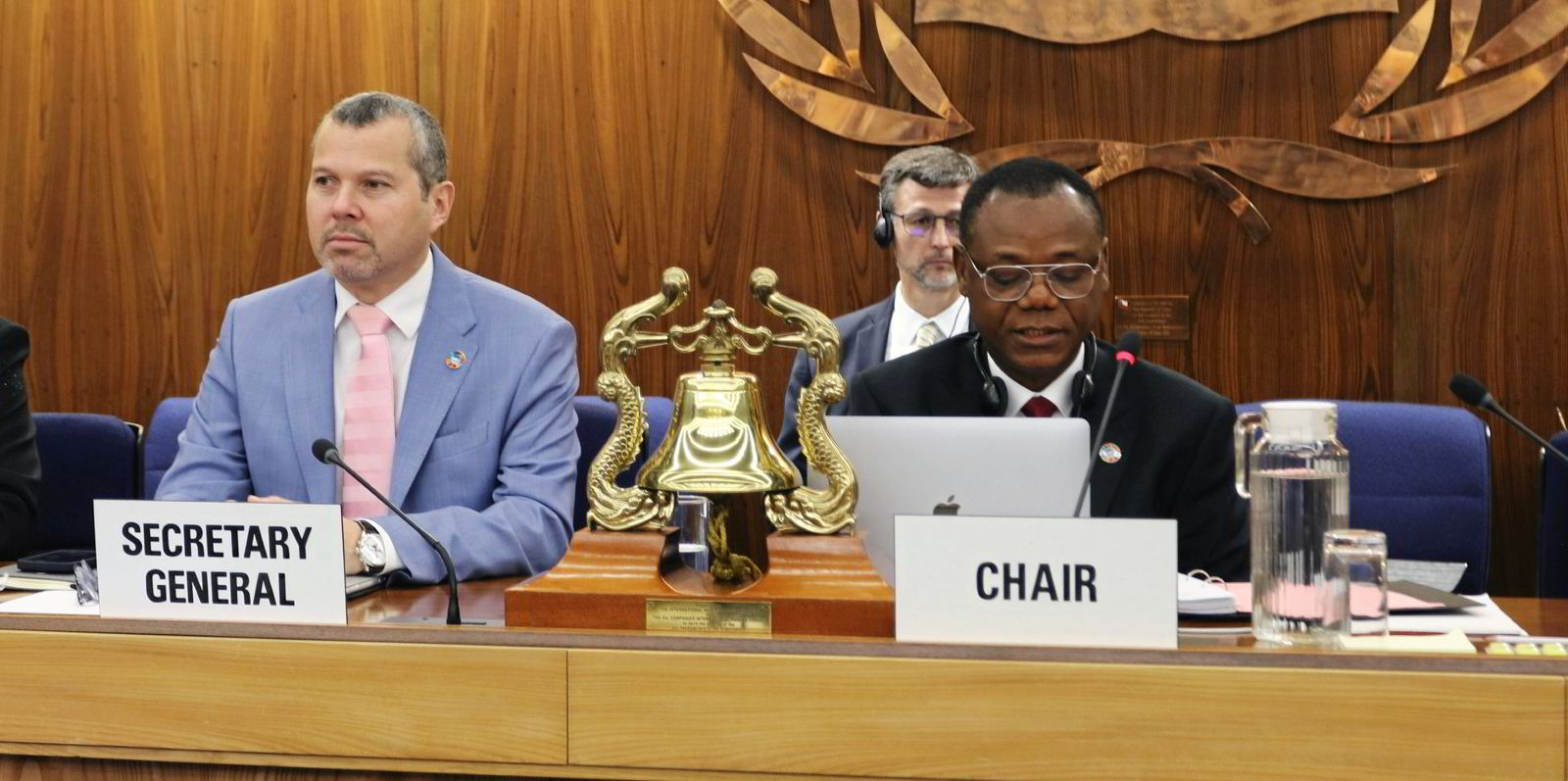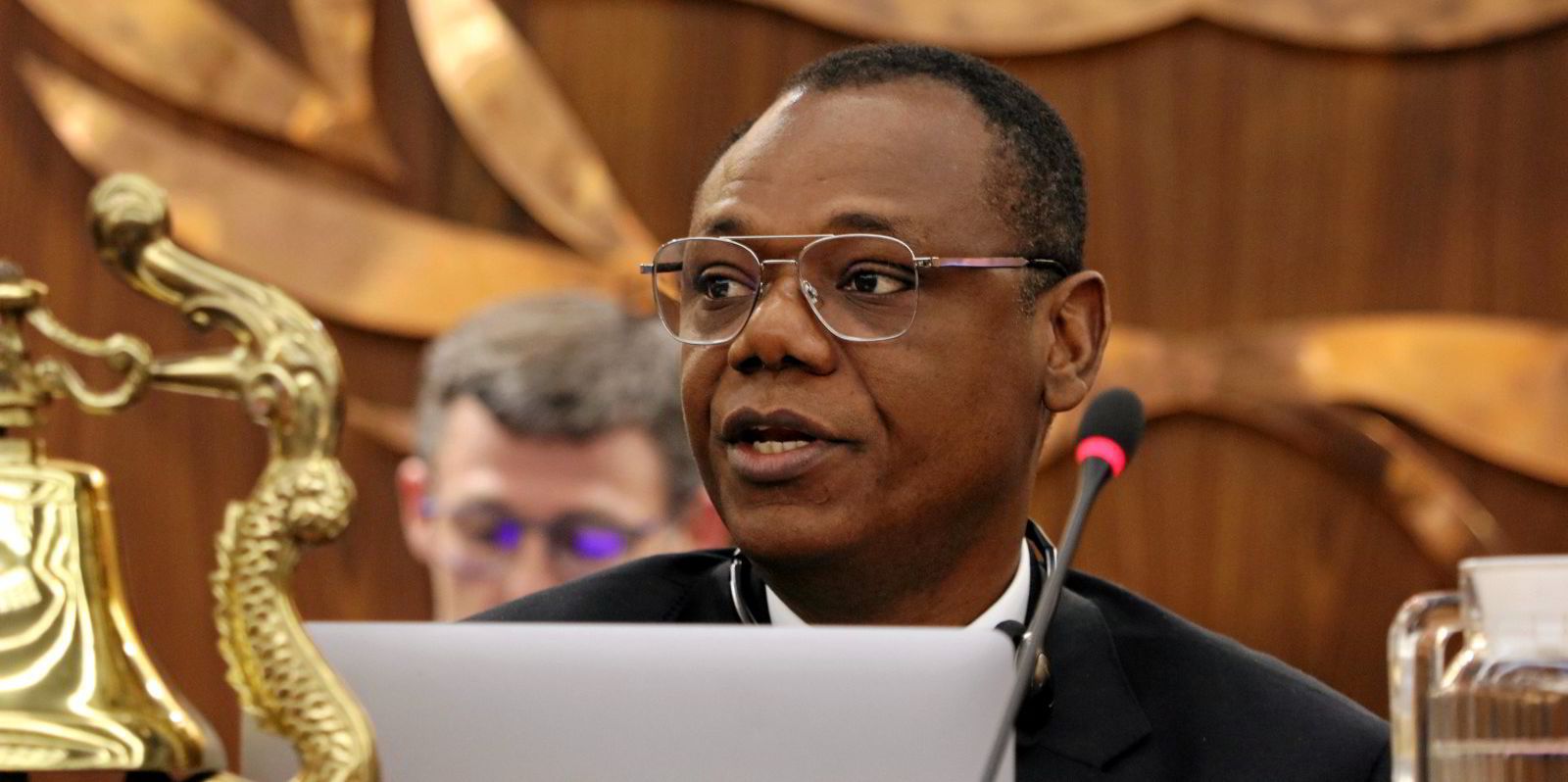This week’s meeting of IMO delegates in London was never expected to deliver the back-slapping results seen in 2023 when decarbonisation targets were set.
But the Marine Environment Protection Committee did realise one thing: as the finish line approaches, a lot more work needs to be done and at speed if they are to meet their deadline.
IMO members and correspondence groups agreed to meet again this summer and organise yet another intercessional meeting directly ahead of the next MEPC in late September.
This is all to ensure that by the time they meet in April next year, there is a consensus on the measures to be set in stone governing how shipping will decarbonise.
But as the German delegation pointed out: “There is more heavy weather coming”, referring to the need for member states to resolve their differences over the remaining measures on the table.
On the one hand, there is a technical measure, called the fuel standard, to set a bar for emissions for a pool of ships or an individual vessel. On the other, there are differing versions of an economic measure, such as a fund or trading system idea, a feebate or levy.
Member states still have differences over how to reach their final objective despite making speeches in agreement on the what and when.
Brazil, China, Argentina, Saudi Arabia, Chile, Indonesia, Peru, Paraguay, and others, all raised the question of whether the goal of these measures is to raise revenue or to decarbonise shipping.
They have been vocal against a levy.
Other countries argue that decarbonisation will not happen without a strong revenue element or incentive to push change, and then fund technology advancement, fuel production and help respond to the impact of changes on developing countries.
The least developing countries still support a strong revenue element in the rules, notably as the disbursement would benefit them.
The Marshall Islands, Kiribati, Solomon Islands and Fiji, call for a “fair and inclusive future all, aligned with objectives of sustainable development goals”.
The Cook Islands representative summed up the concerns of the small island developing states and least developed countries.
“We would like to arrive at MEPC 82 (in September) confident that the proponents of all the measures will enlighten us, and comfort us, by telling us how their measure will ensure that we will get safe, secure, timely, cost-effective, and by that I mean affordable. Sir, it is that simple."
These countries believe that the fuel standard will not achieve the goals of decarbonising shipping by 2050, and will continue pushing for a stronger economic measure.
Meanwhile the European collective push both a fuel standard and a strong economic element. One delegate told TradeWinds this is likely because of its potential similarity to the Fuel EU maritime regulations which come into force next year. One common feature to note is the suggestion of shipowners being able to pool vessels to achieve compliance.
The green lobby groups have been as vocal as ever, citing this week’s discussions as pointing to a growing convergence on a levy. But that is far from a done deal and there needs to be more give than take over these next round of talks.
Possible, maybe, illustrative, changeable
The Greenhouse Gas working group had one outcome this week that showed some development — an illustration of a set of chapter headings that could be used to shape the final tests which would then be put into the marine pollution regulations.
The suggestion is that any further discussion and proposals could use this as a template by the IMO member states, whichever camp they currently sit in.
There is a need, said the chair of the greenhouse gas group, for the member delegations to work together outside of the meetings to prepare new papers for the IMO that can speed up the convergence that he believes is beginning to happen.
How to spend the money
While Brazil and others raised questions about the need to raise revenue, one of the delegate workshops this summer is to further discuss how to disburse revenues from the measures. This can only be decided however once Unctad has completed its assessment of how the various combination of measures might impact countries.
So with delegations heading home after two weeks of greenhouse gas negotiations, it remains totally up to them to decide which parts of their proposals are most important to them and which bits they can give up.
And to then work with other states, notably those in other camps, and as the final report suggests, use the illustrative outline to prepare a consolidated proposal.
The final MEPC for all this is only a year away.




